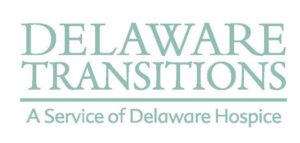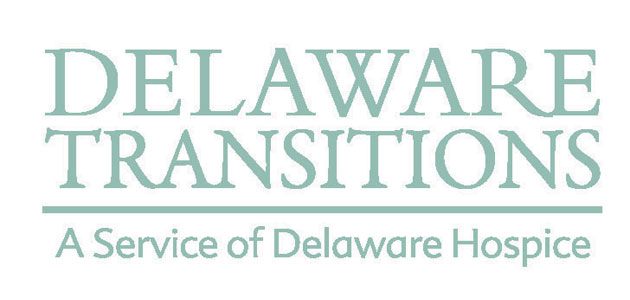Make Every Day Count
Helpful information for family caregivers
February/March 2020
February is American Heart Month, so we are looking at the common condition of heart failure. Learn to recognize the early signs in “F – A – C – E – S” so you can talk to the doctor about early intervention. On another note, it’s easy to feel like you are the only one pitching in to care for an aging loved one. Our second article looks at ways you may be inadvertently limiting your own ability to ask for help. Last, we look at a preventive strategy for lung infections: Brushing teeth. Who would have guessed that better oral care could prevent pneumonia?
Early signs of heart failure
 Too often, older adults assume that fatigue and trouble breathing are just a natural part of aging or being out of shape. They aren’t. In fact, these can be early signs of heart failure.
Too often, older adults assume that fatigue and trouble breathing are just a natural part of aging or being out of shape. They aren’t. In fact, these can be early signs of heart failure.
Heart failure means the heart is having difficulty pumping effectively. As a result, fluids build up, especially in the lungs and lower body. This makes it harder for necessary oxygen to get to all the cells. In a vicious cycle, the heart becomes overworked and enlarged trying ever harder to circulate more oxygen.
Catching symptoms early is key to engaging treatments that prevent this condition from getting worse. A visit to the doctor is in order if you notice the symptoms below.
Check for “F-A-C-E-S”
- Fatigue. Tiredness and lack of stamina.
- Activity limitation. Inability to do usual tasks without becoming tired or out of breath.
- Congestion. Coughing and wheezing may be a sign that the heart and lungs are building up fluid.
- Edema. Edema is swelling in the ankles, legs, and abdomen. It can be a sign that the heart is not pumping at full strength.
- Shortness of breath. Fluid in the lungs can make it difficult to exhale and inhale fully. This results in shorter, quick breaths that are much less effective.
It may not be heart failure, but testing is advised. The doctor may order blood work and an ultrasound to see the heart in action (echocardiogram).
Depending on the severity of any damage in the heart, treatment may include medication, surgery, or devices that assist the heart.
There are lifestyle changes, too, that can help prevent further damage: Quitting smoking. Monitoring weight. Restricting salt.
Also ask the doctor or pharmacist about over-the-counter medicines. Certain pain relievers, cold remedies, and heartburn drugs are especially hard on the heart. And herbs such as green tea, ginseng, or St. John’s wort can interfere with heart medications.
Return to topThe myth of self-reliance
 As a society, we value independence. The self-sufficient super-achiever. When it comes to family caregiving, however, this mind-set can backfire, resulting in stress and burnout for you, not to mention greater risk for your relative. (Imagine if something happened to you and no one else knew what to do!)
As a society, we value independence. The self-sufficient super-achiever. When it comes to family caregiving, however, this mind-set can backfire, resulting in stress and burnout for you, not to mention greater risk for your relative. (Imagine if something happened to you and no one else knew what to do!)
Your mind may be the culprit. When you think about asking others for help, does your mind immediately come up with reasons why they can’t? Those are thoughts and beliefs trapping you, not reality or facts. It is time to question your assumptions.
Liberate yourself
For each obstacle statement, challenge your limiting thoughts with alternate possibilities:
- “They are too busy.” This is an assumption. I won’t know until I ask.
- “I should be able to do it all.” The situation is more than anyone could foresee or do alone. It’s reasonable to ask for help.
- “I’m emotionally the closest.” That may be; however, that doesn’t mean that others don’t have a role to play. It is an opportunity for them to learn and participate, and also for the person I care for to have greater security and feel supported by more than just me.
- “They live too far away.” Even if they can’t help with hands-on activities, there are other ways they can contribute that will make my load lighter.
- “It’s more work to teach them than to do it myself.” That’s true at first. But then they will know how and can do it again. This is an investment.
- “They won’t do it right.” I can teach them. It’s okay if it’s not perfect or the way I would do it.
- “They don’t want to help. If they did, they would have already.” This is an assumption. They won’t know what’s needed or how to help unless I express the need.
Dad can't brush his teeth
 Is dementia making oral care difficult?
Is dementia making oral care difficult?
Unfortunately, this isn’t a task to let go.
Poor mouth care leads to cavities and gum disease, and then to toothaches, sore gums, and a disinterest in food. It can also contribute to a deadly infection, “aspiration pneumonia.” Even if the person you care for is no longer eating, bacteria in the saliva slip down the throat into the lungs.
Toothpaste and brushes
Avoid mouthwash. And fluoride toothpaste. These are not healthy if swallowed. Instead, use just water or a baking soda–based toothpaste. For a better grip, look for a large-handled toothbrush or use an electric one.
Tips for brushing teeth
- Prepare their toothbrush for them.
- Model tooth brushing. Put your toothbrush in your mouth. See if they can follow along. If not, have your loved one sit while you sit or stand behind them. Put your hand on top of theirs to help them brush. Explain each step as you go.
- Try to also brush his or her tongue and the roof of the mouth. Mucus here can harbor harmful bacteria. (Even people with dentures need to have their gums and tongue—and dentures—cleaned.)
- Rather than cleaning teeth in the bathroom, consider sitting at the kitchen table with a bowl and water. It’s a friendlier, more spacious room. You might add calming music or a special toy to hold.
If brushing doesn’t work
Don’t force your relative. Try just wiping the teeth and gums. A cotton swab, a “toothette” (sponge on a stick), or a cloth wrapped around your finger and dipped in water can be very effective. Use this approach only if you are sure your loved one won’t bite! Call the dentist for further ideas if none of these works.

